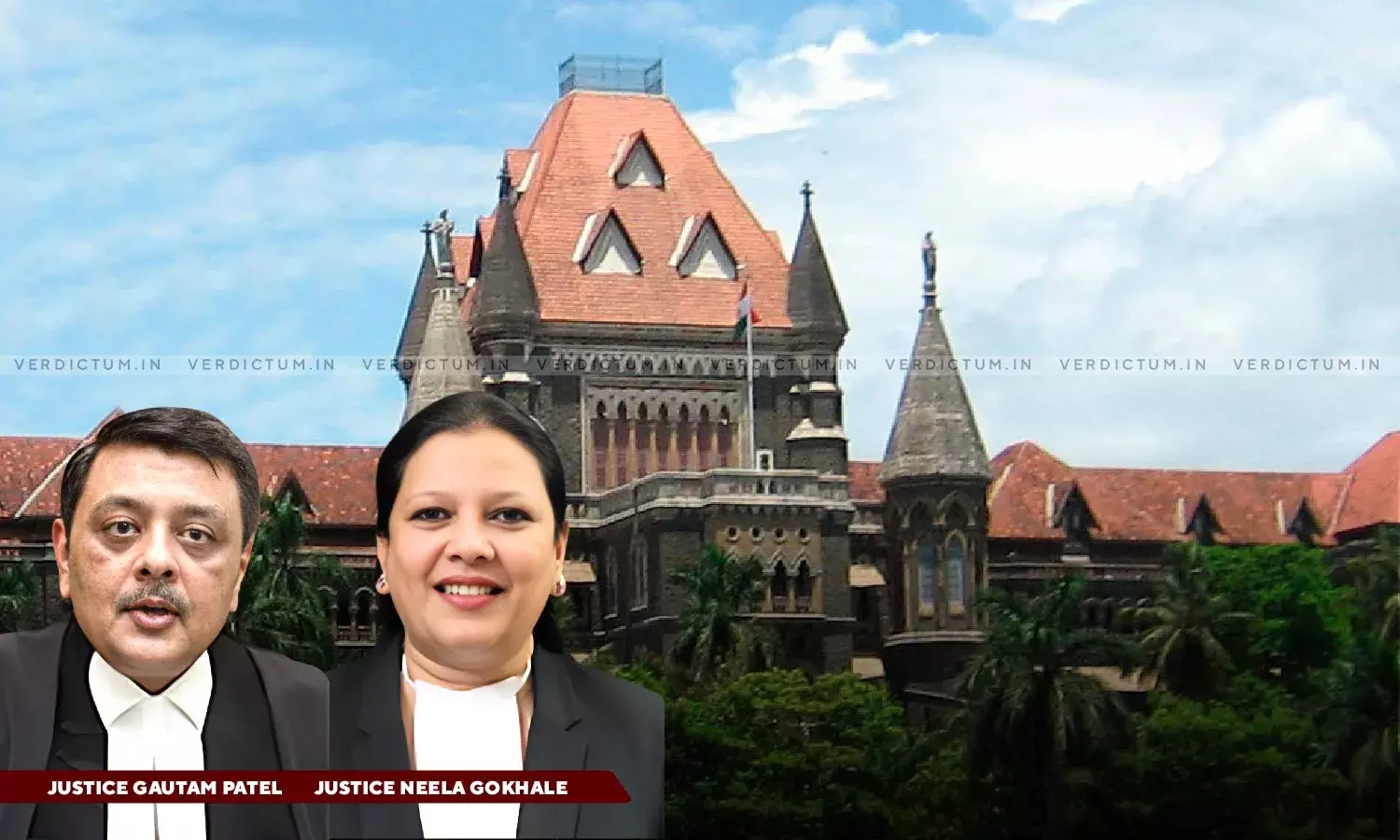Collective Endeavour Must Be To Assist Those Most In Need: Bombay HC Allows Visually Impaired Student To Study Physiotherapy

The Bombay High Court while allowing a visually impaired student to study Physiotherapy has said that the collective endeavour as a society and State must be the constant effort to assist those who are most in need of assistance.
A Division Bench comprising Justice G.S. Patel and Justice Neela Gokhale held, “We must, we believe, express our very great dismay and displeasure at this approach of a regulatory Council . The constitutional mandate is not to find further methods of exclusion. It is not to find new methods to benefit majorities. The protections of Part III are for minorities, those marginalized and those deprived. Our collective endeavour as a society and particularly that of the State Government has to be a constant effort to find ways to assist those most in need of assistance; and never to say that nothing can be done. As a society in a Constitutional framework, one that is a Republic and therefore governed by the Rule of Law, the measure of how civilized we are is not the benefits we confer on those who are already privileged, but how we care for those most in need of protection.”
The Bench said that the stand of the Maharashtra State Occupational Therapy and Physiotherapy Council that no low-vision candidate can ever be admitted to a Physiotherapy course cannot be sustained.
Advocate Kanchan Pamnani represented the petitioner while GP P.H, Kantharia, Advocates Sameer Khedekar, Rui Rodrigues, Ganesh Gole, and Priyanka Patil represented the respondents.
Facts -
The petitioner was suffering from a low vision visual impairment disability to the extent of 40%. She completed her SSC in 2020 and her HSC in 2022 and desired to study and later practice physiotherapy. She contended before the court that she was denied the opportunities only on account of her vision impairment by the respondents. She had undergone NEET counselling following the 2022 examination and sought admission to the physiotherapy course.
She was allowed to remain present before the Medical Board and the court permitted her to fill in the form for the physiotherapy course and participate in the admission process (subject to further orders in the Writ Petition and without being entitled to claim equities). She was in her first year and was scheduled to appear for the first-year examination shortly. However, by an amendment made by the National Medical Commission, it was announced that those with a visual disability of 40% or more were set to be ineligible for such courses.
The High Court in the above context of the case observed, “On balance, what does the material before us show? First, that there is no demonstrated, independently established consensus that the practice of Physiotherapy requires zero visual impairment. As against this, there is overwhelming material produced by the Petitioner (including Ms Pamnani’s Rejoinder) that exactly the converse is true: Physiotherapy is shown as being studied and practiced successfully by those even with 100% blindness. We are not called upon to decide what aspect of Physiotherapy can be successfully or safely practiced by what person. That is obviously governed by standards that would be established or by institutes where these persons work.”
The Court noted that it was not told as to what aspects of Physiotherapy can be safely studied or practiced by those with low vision.
“Second, what is most notable about the OTPT Affidavits and the OTPT reports is not what they say but what they do not say. There is a complete failure to assess the extent to which low vision impairment will not impede the study or practice of the Physiotherapy. That was our question. It was asked several months ago. Five months later, it remains without an answer. We are only told that no visual impairment can be permitted for the study and practice of Physiotherapy”, also noted the Court.
The Court said that it expects councils like the State OTPT Councils to always address themselves. It further said that the answers received in the affidavits are not only unacceptable to any judicial, constitutional, or moral conscience but are a betrayal of a Constitutional mandate and statutory duty.
“The Petitioner has already been given protection by orders of this Court and admitted to the first year of the Physiotherapy course. We clarify that her admission and continued study is not to be interrupted nor to be cancelled only on the ground of a low vision impairment”, directed the Court.
Accordingly, the Court allowed the petitioner’s plea.
Cause Title- Zill Suresh Jain v. The State CET Cell & Ors. (Neutral Citation: 2023:BHC-OS:5589-DB)


